What is HISTORY?
History is a subject in school like biology, languages, sports, whatever. It seems to be as much (or as less) important as those other subjects. I didn’t like it very much in my own school days and only now, many decades later, I come to understand why it is so important to learn about history, the history of our own country and that of those countries with which we were or are in close contact.
This article is inspired by what I learned recently about my own country, Germany, by reading books which told me many things I didn’t know. They often are not available in English, but here is an article in English which I came across only a few days ago and which gave me other info which I hadn’t known: (Read here)
Why do we re-invent the wheel whenever we can?
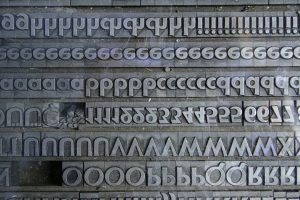
We certainly would all agree that it wouldn’t make much sense to invent again letters and numbers in order to write down what we say. The writing was invented a long time ago and its use is still valid. We can invent some new fonts, that is fun, but we wouldn’t invent completely new symbols for the sounds, it just wouldn’t be worth the effort and lead to no better outcome. We hold the way things are written in our collective memory as we learn it in early years in school and we understand why we need it for our everyday life.
This is different with history. We learn in school about wars and similar ugly things in the past, the exact years of some historic events (mostly famous battles or beginnings and endings of wars) in order to pass the exams in school. And then we forget everything as soon as possible. In our young and adventurous mind, we might not want to hear about these horrible things which live somewhere in the unreal past. We want to do something good in the world, at least many young people do. We are full of idealism and energy, we run to object to what is not working right now and we are determined to make it better. And, unfortunately, with our limited knowledge, we also believe to be in the possession of the truth and the only working concept to make everything happen for the best outcome. We intend to re-invent the wheel and are not willing and able to realize that the wheel we are riding on had been broken time and time again in the past. We haven’t understood anything about history because we didn’t really get in touch with it in our own lives. And so our most positive enthusiasm and energy will bring us most likely to the exact opposite of what we had foreseen in our ignorance and blindness.
How long can we go on with “more of the same”?
Everybody needs to make their own experience and suffer the consequences of their decisions. Well, yes, this is fundamentally true. But do we really need to re-invent the wheel or the written word? Isn’t there a possibility that the next generations can learn from what has worked in the past and what has not?
I believe that this is the only way for humanity to survive the present challenges. As long as we were only a few humans working with an ax and scythe we couldn’t create much damage even when committing the worst errors. With the number of people on the planet and the easy buttons for virtually everything we just cannot allow everyone to experience their destructive thoughts and actions before becoming wise. The damage might be fatal. We as humanity need to not fall into the same errors ever and ever again!
Why do I write all this?
Because I am learning about the cause and effect of not knowing what is important to know for getting oriented in life instead of bouncing around with all sorts of undesired outcomes.
And also because I realize that we humans have a hard time to learn from history for several reasons:
- We are humans and want to have our own way, At least at a certain level of development, we don’t tolerate that others tell us what to do or not to do. Resistance is a major trait in humans, as well as egocentric orientation.
- What we learn in school about history is biased according to the dominant political position of the society we are living in. In history books, facts might be listed, but many are not named, they are “white lies”, and the interpretation of the facts are one-sided and intentional to create a certain outcome.
- Some “facts” are not evident to be that. Today we would call that “fake news”. An objective view on history is very difficult and to teach it to others in an understandable and motivating way even more.
- We just don’t listen to enough different views and perspectives on the past to really become able to understand on what ground our own life is based.
- We use the easy button, motivated by all the difficulties and inclinations mentioned above. Accordingly, in a naive conviction to be willing to do our very best, we go out in the world and, by doing that, we increase the chaos and the problems instead of resolving them. Against our good will we become part of the problem, not of the solution.
With that, I begin to understand why so many attempts to do good in the world end in disappointment, frustration, and even destructive behavior; the total opposite of where it started from. And I also begin to understand that we neglected the study of the past, our own past as a human being, by not discovering our dark sides and our still unrealized potential; as well as the past of our cultures, of our ideas and how they worked out when adopted in real life.
Germany’s predicament
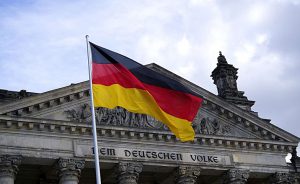
Maybe that now is the right moment to tell you what inspired me to this post. It was the article as mentioned above, but also books and films about my native country Germany which tell a different story than the one we heard in school. History lessons stopped before WWII when I was at school and no word about the mindset and the specific German traits which were the basis for such an outcome to be produced. Nobody really wanted to talk about the recent past where so many murderous things have happened. There was the collective attempt to just forget all about it. Otherwise, people of my country, every single person, would have needed to question themselves about the degree of their participation and their enabling of what has happened. There was a huge silence in the families, we became oriented into the future, the past was over and we didn’t get to know anything, especially not about how our family lived in those times.
What we knew and didn’t know as children in Germany
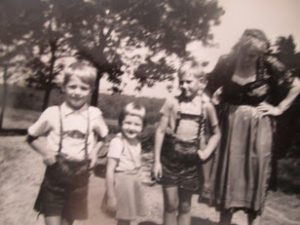
Well, yes, we knew that my mother went 2x25km with a very primitive bike to get a sack of potatoes from distant farmer relatives. We knew that my mother married my father during the war, during his second holiday days from the war line. (So they knew each other for maybe 10 days altogether before marrying). We knew that she went to the prisoners’ camp and succeeded that my father was released already in 1947 while others were kept prisoners there for many more years and under terrible circumstances.
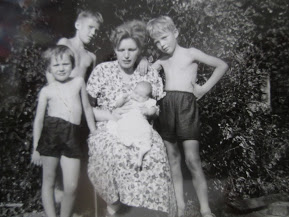
We knew that my father couldn’t proceed with his University studies which he had begun in the first year of the war, but that he did a crash course to become a primary-school teacher, and that he hardly succeeded to feed his quickly growing family with what he earned. Yes, we got to know these things, but we never got an emotional impression of what they had gone through, they never wanted to talk about what had happened with their Jewish neighbors and how their position was towards the Nazi party and its ideologies. And as children, we even didn’t know that there was something that we could have asked. Silence everywhere in the society which was eager and busy to build itself up again.
Confronting the past
Bettina Alberti wrote a book (Bettina Alberti on the post-war generation ) – and most impressively talked about it at the conference I attended last month – about how the silence has impacted the children and grandchildren of that generation. In the past 30+years, many conversations took place in Germany to come to terms with our collective history, mainly by members of the younger generations. The victim/predator generation was caught in amnesia of frozen fear and terror, psychologically unable to face the topic. Germany has done a lot to finally face its past, to acknowledge the guilt and to try to do some amends: For instance, the beautiful gesture to welcome all refugees by remembering how difficult it was for German Jews to find a secure place in another country. (It was by no means that countries like America opened their heart and doors to German Jews – unless they found someone already in the country who would take over reliability for them – a fact that too easily is ignored when talking about the generosity of other countries in the face of Hitler’s horror regime).
Overcoming and healing the past to become able to face the future properly
Today Germany is called again to take over leadership in the world and to not leave vacant this position to the detriment of all, as it would allow those forces to grow and reign which would certainly contribute to a further destabilization of the world. Other countries are somewhat fearful to have seen Germany rise, and Germany itself is hesitant to take over the leadership role in remembrance of its past. We Germans have still a weird relationship to our nationality and our nation. And that means that, despite all the efforts, we haven’t yet transcended and included our past.
Becoming a healthy and trustworthy nation, unfortunately, is not a question of neither decision nor contemplation of the collective guilt. Every one of us has to look deep inside and search for the personality traits which have enabled the behavior of our parents on one side, and on the other side, we need to clearly see and name the abuse which deliberately has taken place by the ideologists. We need to separate the wheat from the chaff and stop throwing out the baby with the bath water. Our ability to commit, be faithful, do things well and be enthusiastic for idealistic goals has been betrayed and exploited in the worst possible ways. But, after all, we are still operating inside of this framework! And as long as we don’t bring our personal shadows at the light and find out how far they are embedded in our unconscious and how we can get some hand on them, then we can by no means be sure that we wouldn’t repeat the same old errors.

We need to FEEL what it means to be a victim, and to FEEL what it means to be the perpetrator, we need to understand that we, individually, are capable of the most horrendous things in situations that favor our worst parts to be acted out – unless we intimately know them and can decide wholeheartedly against them. We as humans have the whole spectrum of possible ways of being, the noblest ones, and the very worst ones. Unless we don’t get acquainted with the murderer in us we cannot be a good person. Unless we recognize the dictator inside ourselves we will unconsciously work towards becoming one – or be his or her victim. (Read my blog post on the conference “The Courage to Feel” here)
Whoever told you these things in your history lessons? Whoever told you that evil does exist and that it dwells right inside you and will command you unless you get to know it and take over the command yourself? Goodness is not automatic, it needs to be desired and worked towards wholeheartedly!
If you want some inspiration about what everyone of us can do to avoid the errors of the past, individually and collectively, here some resources (click on the links below)
Videos: Jordan Peterson: Pathological Belief Systems
A film about pre-war childhood in Germany: “The White Ribbon” (trailer)
Books
Sabine Bode on the post-war Children
Bettina Alberti on the post-war generation
Barbara von Meibom about Reconciliation with the Shadow
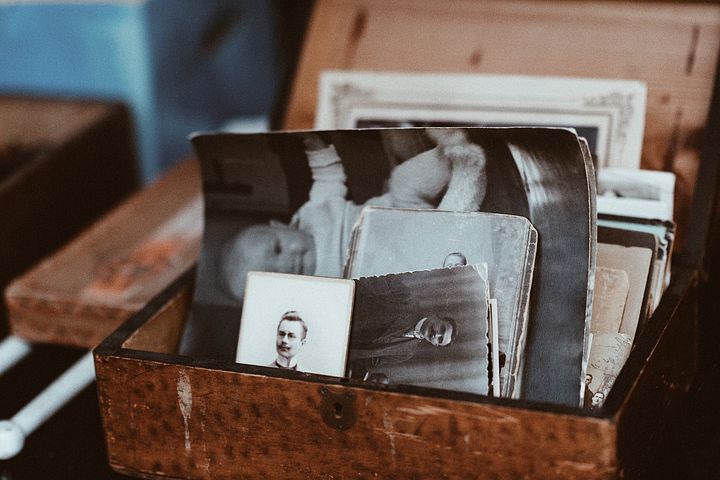
Thanks for a great read. It’s frightening to think how history gets re-written by revisionism and how it can be lost over time.
I fear for the future with some of the antics going on today. I have noticed recently that a lot of religions are intent on trying to change history to suit their own idealogies. It’s a worrying trend. I believe it’s very important to study history and maintain it so we can learn from our mistakes.
Right. But unfortunately history today is not very much appreciated in the “fake news” era where everybody believes to know everything without any effort to learn.